What Is Accounting ERP? A Beginner’s Guide for Businesses in Qatar (2025)
How important do you think financial management is in ERP?
Well, Selecthub did some data digging and found out that 89% identified accounting as the most crucial function within an ERP system. Ranking above Inventory and CRM.
Qatar has always been a rising economy. The newer initiatives being powered by the Qatari government make it a more stable and economic decision for many businesses. Even when all your processes are in sync like a symphony, it’s the risky financial decisions that play the maestro. One dirham here or there is enough to shut down a whole process
Accounting ERP systems have become a critical tool for staying competitive, scalable, and compliant. But what exactly is an accounting ERP? How can it reshape the way you run your business in Qatar?
Experts are here to walk you through the fundamentals of accounting ERP and why it’s an investment worth considering if you’re serious about growth.
What Is an Accounting ERP?
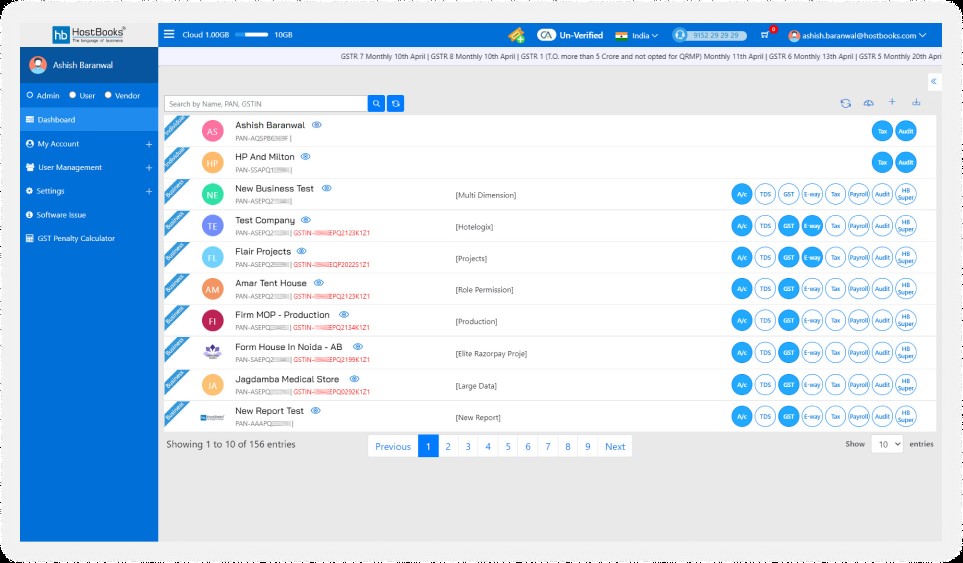
An Accounting ERP is an integrated software solution that combines accounting functionalities, like general ledger, accounts payable, and receivable, with broader enterprise resource planning tools such as inventory management, HR, CRM, and procurement. In simple terms, it is a single software system that handles all your business’s money stuff.
Instead of using multiple disconnected tools (spreadsheets, standalone accounting apps, etc.), businesses can use a single platform to track everything.
For Qatar-based companies dealing with multi-currency transactions, VAT compliance, and cross-border operations within the GCC, an accounting ERP acts as the control tower for all the operations. The data curated from various departments gives you real-time visibility into your company’s processes and makes your life so much easier.
Key Difference Between Accounting Software and ERP
While traditional accounting software focuses solely on financial transactions, accounting ERP extends beyond finance. It brings all business processes into one system. For example:
- Inventory syncs with accounting: Whenever you sell or purchase items, the system automatically updates stock levels and books the corresponding revenue or expenses.
- HR and payroll integration: Employee salaries, bonuses, and deductions are recorded directly into financial accounts.
- Sales and customer data: ERP ties sales activity to accounting records, enabling more accurate revenue forecasts.
Why Accounting ERP Matters for Qatar Businesses in 2025
40% of Organizations Mistakenly Believe Cloud ERP will Automatically Result in Faster Financial Reporting. Not just cloud ERP can help you scale, but you also need some associated features to help. Like :
1. Real-Time Data and Decision-Making
With Qatar becoming a global business hub, waiting until the month-end to get financial clarity can mean missed opportunities. An ERP provides real-time cash flow and profitability tracking, essential for businesses operating in a dynamic market.
2. VAT and Compliance
Since the introduction of VAT in Qatar, compliance has been a key concern. Modern accounting ERPs come pre-configured with FTA (Federal Tax Authority) compliance, automated VAT calculations, and e-invoicing support, reducing manual errors and penalties.
3. Scalability
Whether you’re opening a new branch in Sharjah or expanding across the GCC, your ERP should handle multiple entities, currencies, and transactions seamlessly.
4. Automation and Cost Efficiency
Qatar’s competitive market requires cost efficiency. Accounting ERP automates repetitive tasks like bank reconciliation, invoice generation, and payment reminders, freeing your team to focus on growth.
5. AI-Powered Insights
ERPs in 2025 integrate AI to forecast cash flow trends, detect anomalies, and help businesses plan for rapid expansion, particularly in sectors like logistics, retail, and F&B.
Core Features of Accounting ERP
When choosing an accounting ERP in Qatar, these features are non-negotiable:
1. General Ledger and Financial Management
Multi-currency support (AED, USD, EUR, etc.), automated journal entries, and consolidated financials for multi-entity businesses.
2. VAT-Ready Accounts Payable & Receivable
Automated VAT reporting, invoice generation, and integration with Qatar payment gateways like FAB, Mashreq, and Emirates NBD.
3. Inventory and Procurement Management
For retail or trading companies, real-time inventory and supplier management ensure smooth operations.
4. Payroll Integration
Types of ERP systems tailored for Qatar automatically account for WPS (Wage Protection System) compliance and statutory deductions.
5. Reporting and Analytics
Dashboards that offer insights into VAT, cash flow, and financial performance in real-time.
6. Cloud-Based Access
Cloud-native ERPs are becoming standard in Qatar, allowing secure access from anywhere, perfect for remote teams or multi-branch companies.
Choosing the Right Accounting ERP for Qatar Businesses
1. Understand Your Needs
Do you need only accounting or a full ERP with HR, CRM, and procurement? Define your goals.
2. Cloud vs. On-Premise
Cloud ERPs dominate the Qatar market due to cost efficiency and minimal hardware requirements. Some regulated sectors (like finance) may still prefer on-premise for data sovereignty.
3. Evaluate Integration Capabilities
All your types of ERP should connect easily with Qatar banks, payment platforms, and e-commerce sites like Noon or Amazon.ae.
4. Compliance Readiness
Ensure the ERP is updated with FTA regulations, e-invoicing mandates, and other local requirements.
5. Vendor Support
Choose vendors who provide Arabic-speaking support, 24/7 assistance, and training for Qatar businesses.
Top Accounting ERP Trends in Qatar (2025)
AI and Predictive Forecasting
AI-driven financial forecasting and fraud detection are now built into top-tier Qatar ERPs.
Industry-Specific Solutions
ERP versions customized for retail, logistics, hospitality, and other sectors that dominate the Qatar economy.
Mobile-First ERP
Executives want to approve invoices or review cash flow from their smartphones. Modern ERPs enable this.
ESG and Sustainability Tracking
With Qatar’s push towards sustainability, ERPs now include modules to track ESG metrics.
How Accounting ERP Benefits Qatar Businesses of All Sizes
SMEs
Streamlined bookkeeping, VAT compliance, and reduced operational costs.
Mid-Sized Enterprises
Better inter-branch coordination, advanced analytics, and real-time financial visibility.
Large Enterprises
Multi-entity financial consolidation and AI-powered decision-making tools.
Common ERP Implementation Challenges in Qatar
Cost Concerns
Subscription-based models help SMEs avoid heavy upfront costs.
Change Management
Qatar’s multicultural workforce may require training to adopt new systems effectively.
Data Migration
Ensure your vendor provides a secure migration from legacy accounting tools.
Is an Accounting ERP Right for You?
If you’re running a business in Qatar, an accounting ERP is no longer optional; it’s a strategic tool to stay compliant, agile, and competitive. Whether you’re in Dubai’s retail sector, Abu Dhabi’s logistics industry, or Sharjah’s trading hubs, a modern ERP tailored to Qatar regulations can set you up for success.
Want to explore a Qatar-ready ERP designed for 2025?
Here’s HostBooks ERP provides VAT-ready modules, Arabic-language support, and AI-powered analytics to help your business grow.

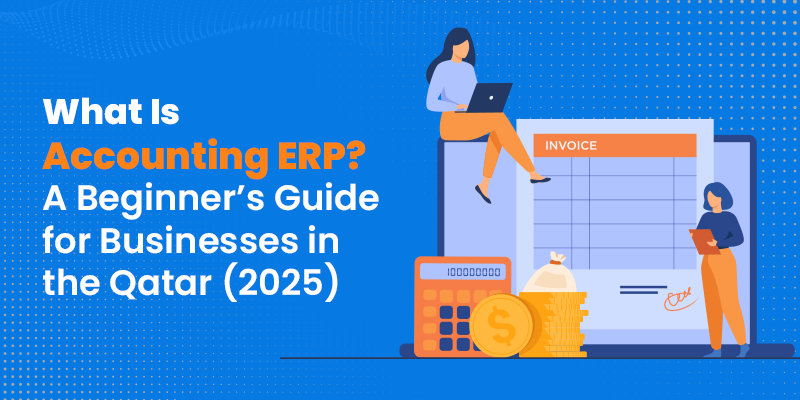
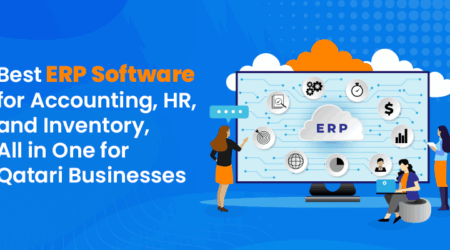


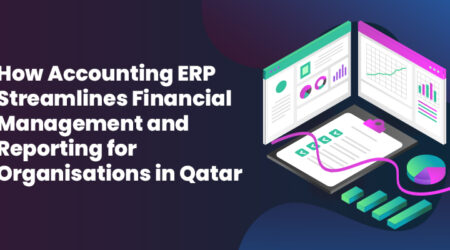
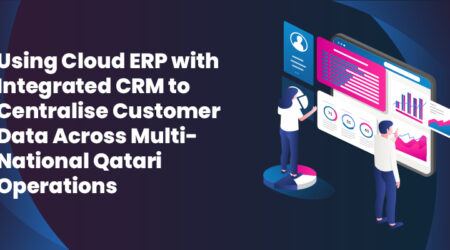
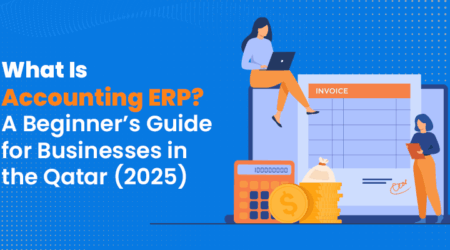
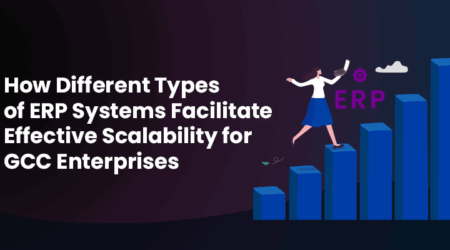
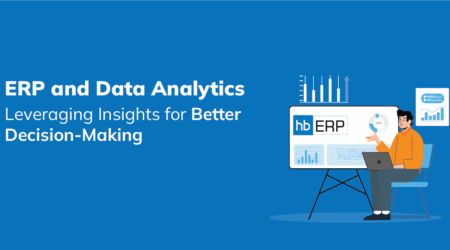
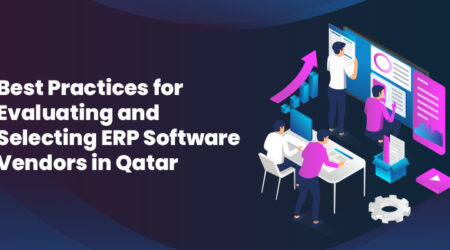
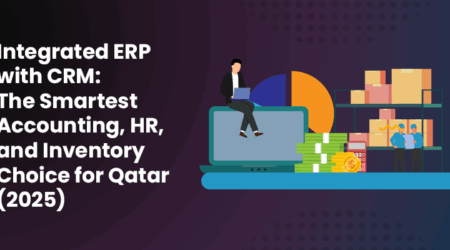
Leave a Reply